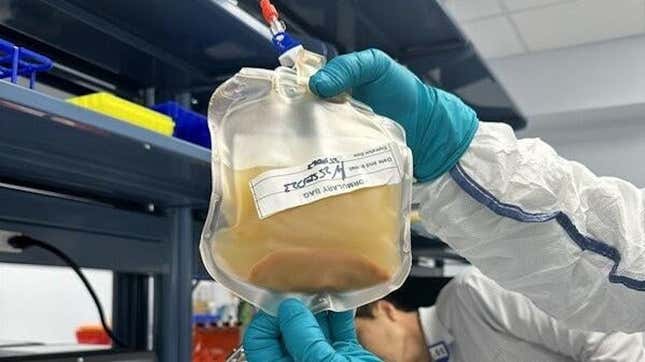
An experimental liver-growing treatment is facing its biggest test in humans yet. This week, biotech company LyGenesis announced that it has just begun a phase II trial of its therapy designed to grow miniature livers inside a person’s lymph nodes. If the therapy works as hoped, it could potentially save the lives of many people with life-threatening liver disease who are unable to obtain a conventional transplant.
The treatment is currently called LYG-LIV-001. It’s derived from donated livers that otherwise wouldn’t be a match for any potential transplant recipient. Certain cells known as hepatocytes are collected from these livers and suspended in a solution. Using a combination of minimally invasive surgery and endoscopic ultrasound, the cells are then transplanted over to the recipient’s upper abdominal lymph nodes. From there, the lymph nodes are expected to act as living “bioreactors,” helping the hepatocytes grow and mature into functional, if ectopic (outside of its usual position in the body), liver tissue.
Advertisement
LyGenesis is hoping to win approval for LYG-LIV-001 as a treatment for end-stage liver disease, or ESLD, a severe state of chronic organ damage. Though someone can live with ESLD for years, it’s estimated that about 2% of all deaths annually are caused by it. Liver transplantation can be an effective treatment, but many with the condition do not meet the criteria for becoming an organ recipient and about 17% of people on the waiting list for a new liver die annually. On Tuesday, LyGenesis reported that the first ESLD patient of its phase II trial has now received LYG-LIV-001.
Advertisement
“This therapy will potentially be a remarkable regenerative medicine milestone by helping patients with ESLD grow new functional ectopic livers in their own body,” said LyGenesis CEO Michael Hufford in a statement. If our study is successful and we obtain FDA approval, our allogenic cell therapy could enable one donated liver to treat many dozens of ESLD patients, which could help to tilt the current organ supply-demand imbalance in favor of patients.”
Advertisement
It will take months before scientists can know whether the treatment has truly helped this first patient, however. And the trial—set to enroll 12 patients in total—is not expected to be completed until early 2026. But if this research keeps showing promise, then the sky might be the limit. LyGenesis is also developing its bioreactor technology to grow other organs, including the kidneys, thymus, and pancreas.
Services Marketplace – Listings, Bookings & Reviews